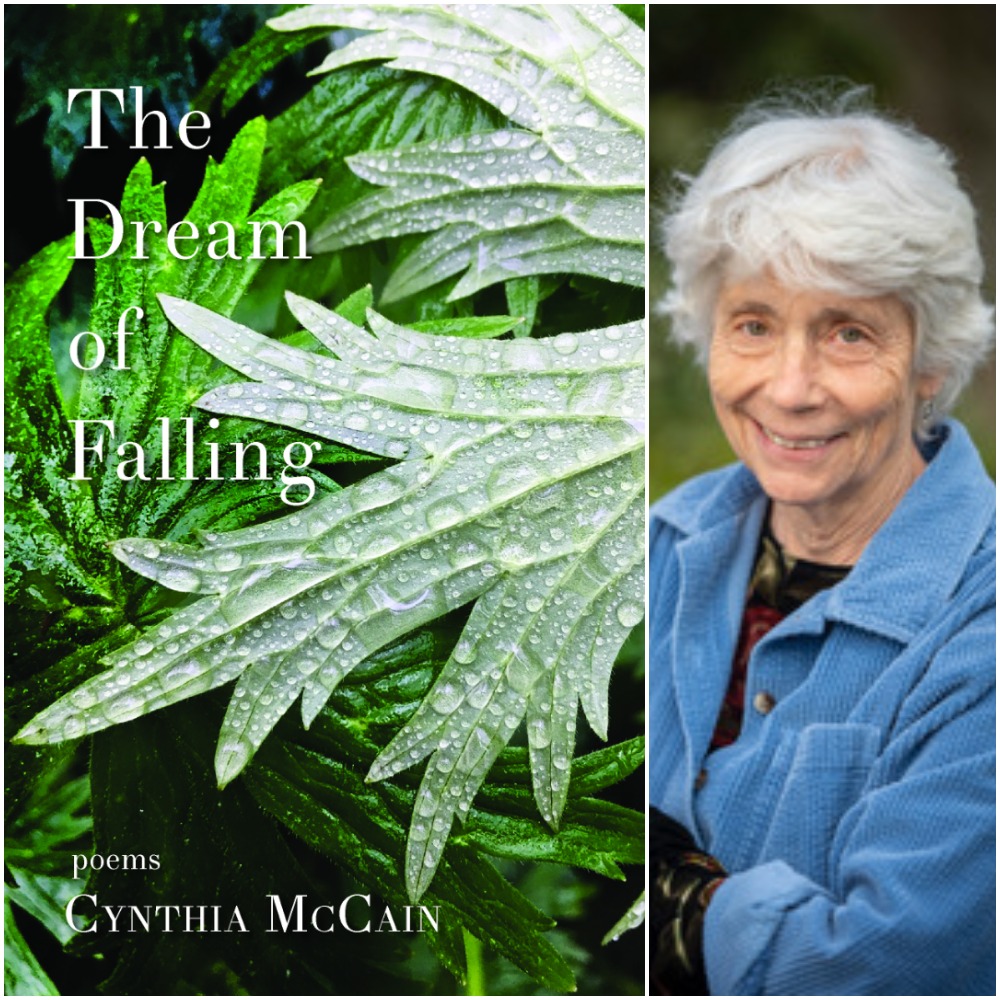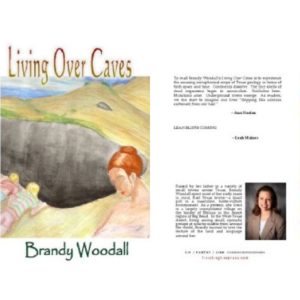The poems in this book hear and speak of “things that no one knows to listen for,” helping readers ponder what we might overlook: a thimbleberry leaf, an old woman’s “sublimating” body, the charms of a local hardware store, the silence left behind by a passing vee of geese. To the always-present inner critic, Cynthia McCain sings a fierce lullaby: “let’s stand in the open field // no one is coming towards us / relax in my arms / let your mouth / go / soft.” Such fine advice! These poems travel out far and in deep.
–Cecelia Hagen is the author of two poetry chapbooks, Fringe Living and Among Others. Her poetry collection, Entering, was issued by Airlie Press. Her poems, essays, and reviews have been widely published and her work has won awards and residencies from Literary Arts, the AWP, the MacDowell Colony, Soapstone, Caldera, Playa, and Passager magazine. She teaches poetry and memoir-writing in Eugene, Oregon.
“I want to be deft, instead I am patient,” writes Cynthia McCain in The Dream of Falling. Filled with moments of keen observation born from such attention, the poems hover at thresholds, perched precariously between worlds both familiar and strange, always aware of what is on the verge of being lost or being discovered. I am struck by the tenderness and depth with which McCain brings not only the large, but even the smallest of losses into the light.”
–Neil Aitken, author of Babbage’s Dream and The Lost Country of Sight. He is a Canadian poet, editor, and translator. He founded Boxcar Poetry Review. His first book, The Lost Country of Sight, won the 2007 Philip Levine Prize for Poetry.
The poems in Cynthia McCain‘s The Dream of Falling speak with a disarmingly direct, vulnerable voice. In “Chestnut-backed Chickadee,” the speaker admits, “Because I can hear them, I feel at home here / but I don’t know what the familiar sounds mean.” Even as they acknowledge ignorance, however, these poems show how much the poet perceives of both natural and human worlds. In “Las viudas (the widows),” spruce grown up from seedlings that sprouted on nurse logs, so “left with space beneath their roots,” and a woman widowed in middle age become metaphors of one another. McCain is a poet who doesn’t spare herself from seeing. In “About her skin” she records “The way you can see through it, / what you can see through her skin.” She also savors the physical world and celebrates it, as in the surprising and delightful hippo poems in the middle of the collection. “Another thing about hippos,” she tells us, “is the hair around their ears sticking up out of the water.” Besides such exuberance, there are poems of quiet witnessing, as in “Finding the true root of the moon,” where “we pass through juncos / like passing through rain.”
–Eleanor Berry, Author of No Constant Hues and Only So Far






Reviews
There are no reviews yet.